 W
WActing Shakespeare is a one-man show of Shakespearean monologues interspersed with theatrical anecdotes devised and performed by Ian McKellen. McKellen first performed the recital in Scandinavia in 1980 and later performed it throughout the world. It was broadcast by PBS in 1982. For the 1984 Broadway engagement, McKellen received the Drama Desk Award for Outstanding One-Person Show and a Tony Award nomination. He received internationally rave reviews with some calling him "The new Olivier" and "The greatest classical actor of our generation". The most recent performance was in Jersey Opera House in 1990.
 W
WPurushottam Laxman Deshpande (alternatively written as Pu La Deshpande, popularly known by his initials or as P. L. Deshpande, was a Marathi writer and humorist from Maharashtra, India. He was also an accomplished film and stage actor, script writer, author, composer, musician, singer and orator. He was often referred to as "Maharashtra's beloved personality".
 W
WThe Belle of Amherst is a one-woman play by William Luce.
 W
WBettina is a chamber opera with music by Friedrich Schenker to a libretto by Karl Mickel. The topic is the writer Bettina von Arnim and her relationship with Karoline von Günderrode. The work is described as an Opera for one actress (mezzo-soprano), children's choir, tape and ensemble. Written in 1982, it was premiered at the Theater im Palast in Berlin in 1987, and was published by Breitkopf & Härtel.
 W
WThe Blonde, the Brunette and the Vengeful Redhead is a one-woman play by Australian playwright Robert Hewett. It is presented as a series of eight individual monologues by seven characters who were affected by the actions of Rhonda Russell, the first character in the play. It was published by Currency Press in 2007.
 W
WBridge & Tunnel is a one-woman Broadway show, in which all of the roles are performed by stage actress Sarah Jones. Jones explores the diverse immigrant makeup of the New York City boroughs outside Manhattan by playing a variety of different characters, each of a different race. The play comprises a series of monologues, in which each character takes the stage during a poetry reading and ends up talking about his or her life.
 W
WA Christmas Carol is a one-man stage performance by English actor Patrick Stewart of the Charles Dickens 1843 novella of the same title, which has been performed in the United Kingdom and the United States on occasion since 1988.
 W
WEight Songs for a Mad King is a monodrama by Sir Peter Maxwell Davies with a libretto by Randolph Stow, based on words of George III. The work was written for the South-African actor Roy Hart and the composer's ensemble, the Pierrot Players. It was premiered on 22 April 1969.
 W
WErwartung (Expectation), Op. 17, is a one-act monodrama in four scenes by Arnold Schoenberg to a libretto by Marie Pappenheim. Composed in 1909, it was not premiered until 6 June 1924 in Prague conducted by Alexander Zemlinsky with Marie Gutheil-Schoder as the soprano. The opera takes the unusual form of a monologue for solo soprano accompanied by a large orchestra. In performance, it lasts for about half an hour. It is sometimes paired with Béla Bartók's opera Bluebeard's Castle (1911), as the two works were roughly contemporary and share similar psychological themes. Schoenberg's succinct description of Erwartung was as follows:In Erwartung the aim is to represent in slow motion everything that occurs during a single second of maximum spiritual excitement, stretching it out to half an hour.
 W
WFlower and Hawk is a monodrama for soprano and orchestra with music and libretto composed by Carlisle Floyd. It runs about 45 minutes.
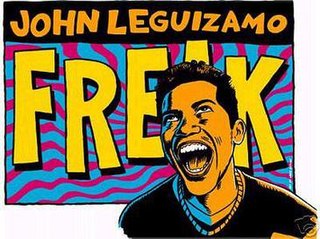 W
WFreak is a 1998 film directed by Spike Lee. The film is a live performance of John Leguizamo's 1998 one-man show on Broadway of the same name. Leguizamo's show was semi-autobiographical as he would talk about many aspects of his life. In the performance piece, he also talks about family members such as his parents, grandparents, uncle, and his younger brother. The film premiered on HBO.
 W
WGive 'em Hell, Harry! is a biographical play and 1975 film, written by playwright Samuel Gallu. Both the play and film are a one-man show about former President of the United States Harry S. Truman. Give 'em Hell, Harry! stars James Whitmore, and was directed by Steve Binder and Peter H. Hunt.
 W
WDie glückliche Hand, Op. 18, is a Drama mit Musik by Arnold Schoenberg in four scenes. It was composed between 1910 and 1913. Like Erwartung, composed a year earlier, it was heavily influenced by Otto Weininger's book Sex and Character. Unlike Erwartung, Schoenberg wrote the libretto for Die glückliche Hand himself. The first performance took place at the Vienna Volksoper on 24 October 1924. The underlying message of the piece is the idea that man continues to repeatedly make the same mistakes, and the plot is developed from events in Schoenberg's personal life.
 W
WGolda's Balcony is a play by William Gibson.
 W
WI Am My Own Wife is a play by Doug Wright based on his conversations with the German antiquarian Charlotte von Mahlsdorf. The one-man play premiered Off-Broadway in 2003 at Playwrights Horizons. It opened on Broadway later that year. The play was developed with Moisés Kaufman and his Tectonic Theater Project, and Kaufman also acted as director. Jefferson Mays starred in the Broadway and Off-Broadway productions, playing some forty roles. Wright received the 2004 Pulitzer Prize for Drama for the work.
 W
WI Hate This is a solo performance by David Hansen detailing his experiences as the father of a stillborn child.
 W
WKarloff is a biographical one-man play about the life of film star Boris Karloff, written by Randy Bowser.
 W
WKrapp's Last Tape is a 1958 one-act play, in English, by Samuel Beckett. With a cast of one man, it was written for Northern Irish actor Patrick Magee and first titled "Magee monologue". It was inspired by Beckett's experience of listening to Magee reading extracts from Molloy and From an Abandoned Work on the BBC Third Programme in December 1957.
 W
WMark Twain Tonight! is a one-man play devised by Hal Holbrook, in which he depicted Mark Twain giving a dramatic recitation selected from several of Twain's writings, with an emphasis on the comic ones.
 W
WMe and Bessie is a musical revue about the life and career of blues singer Bessie Smith. The basically one-woman show, conceived and written by Will Holt and Linda Hopkins and performed by Hopkins, features songs by Lil Green, Clarence Williams, Henry Creamer, Andy Razaf, and Jimmy Cox, among others.
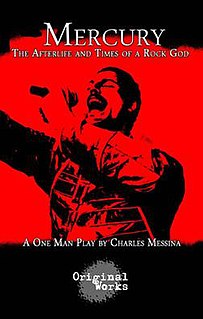 W
WMercury: The Afterlife and Times of a Rock God is a 1997 monodrama written by Charles Messina about the life and death of Queen lead singer Freddie Mercury. It presents Mercury in the moments just after his death, during which he is confronted with self-examination as he "seeks redemption before a God unimpressed by his celebrity."
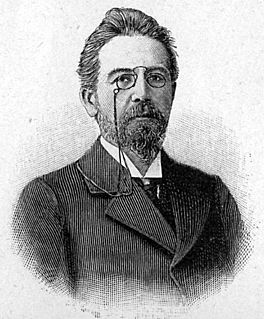 W
WOn the Harmful Effects of Tobacco is a one-act play by Anton Chekhov. It has one character, Ivan Ivanovich Nyukhin. First published in 1886, the play was revised by Chekhov and is best known from his 1902 version. This was first published in English in The Unknown Chekhov (1954), a collection of writings.
 W
WPygmalion is a monodrama in one act by composer Georg Benda with a German libretto by Friedrich Wilhelm Gotter. The opera's first performance was at the Ekhof Theatre, the court theatre in Gotha, on 20 September 1779. Pygmalion was the fourth of the five theatrical collaborations of Benda and Gotter. Gotter based his text on Jean-Jacques Rousseau's 1762 play Pygmalion. Benda's melodrama is unusual as it has no singing roles. Two of the three characters, Pygmalion and Galatea, are spoken roles; the other, Venus, is silently acted on stage.
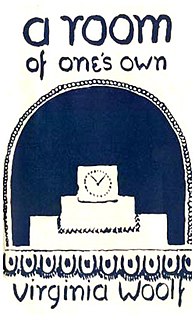 W
WA Room of One's Own is an extended essay by Virginia Woolf, first published in September 1929. The work is based on two lectures Woolf delivered in October 1928 at Newnham College and Girton College, women's constituent colleges at the University of Cambridge.
 W
WThe Search for Signs of Intelligent Life in the Universe (1977) is a one-woman stage show written by Jane Wagner and starring Lily Tomlin, which won the Drama Desk Award for Unique Theatrical Experience and was turned into a film in 1991.
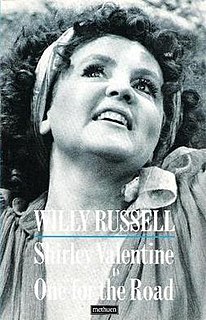 W
WShirley Valentine is a one-character play by Willy Russell. Taking the form of a monologue by a middle-aged, working class Liverpool housewife, it focuses on her life before and after a transforming holiday abroad.
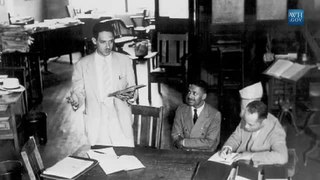 W
WThurgood is a one-man play about the life of Thurgood Marshall. It was written by George Stevens, Jr. The show premiered in 2006 at the Westport Country Playhouse, starring James Earl Jones and directed by Leonard Foglia.
 W
WTick, Tick... Boom! is a musical written by American composer Jonathan Larson. Tick, Tick... Boom! tells the story of an aspiring composer named Jon, who lives in New York City in 1990. Jon is worried he has made the wrong career choice to be part of the performing arts. The story is autobiographical, as stated by Larson's father in the liner notes of the cast recording – Larson had been trying to establish himself in theater since the early 1980s.
 W
WTopless is a one-woman stage play by Miles Tredinnick. It is set on an open-top sightseeing bus and features tour guide Sandie revealing her personal life whilst pointing out the London sights. The play, produced by The Big Bus Company, ran for two seasons in London, firstly in 1999 and then in 2000. The role of Sandie was played by three actresses: Rachael Carter, Alexandra Moses and Serena Hanson. Although the play was written to be performed in theatres, the original production was actually performed on the open-top of a double-decker bus driving around the streets of London.
 W
WTwice Through the Heart is a musical work by the English composer Mark-Anthony Turnage, variously described as a dramatic scena, as a monodrama, as a song cycle, as a chamber opera or even as a "dramatic song-cycle-cum-scena". It is scored for mezzo-soprano and 16 instrumentalists and sets an English-language libretto by the Scottish poet Jackie Kay based on her script for a television programme about a woman jailed for killing her violent husband.
 W
WLa voix humaine is a forty-minute, one-act opera for soprano and orchestra composed by Francis Poulenc in 1958. The work is based on the play of the same name by Jean Cocteau, who, along with French soprano Denise Duval, worked closely with Poulenc in preparation for the opera's premiere. Poulenc's tragédie lyrique was first performed at the Théâtre National de l'Opéra-Comique in Paris on 6 February 1959, with Duval as the solo singer and Georges Prêtre conducting; the scenery, costumes and direction were by Cocteau.